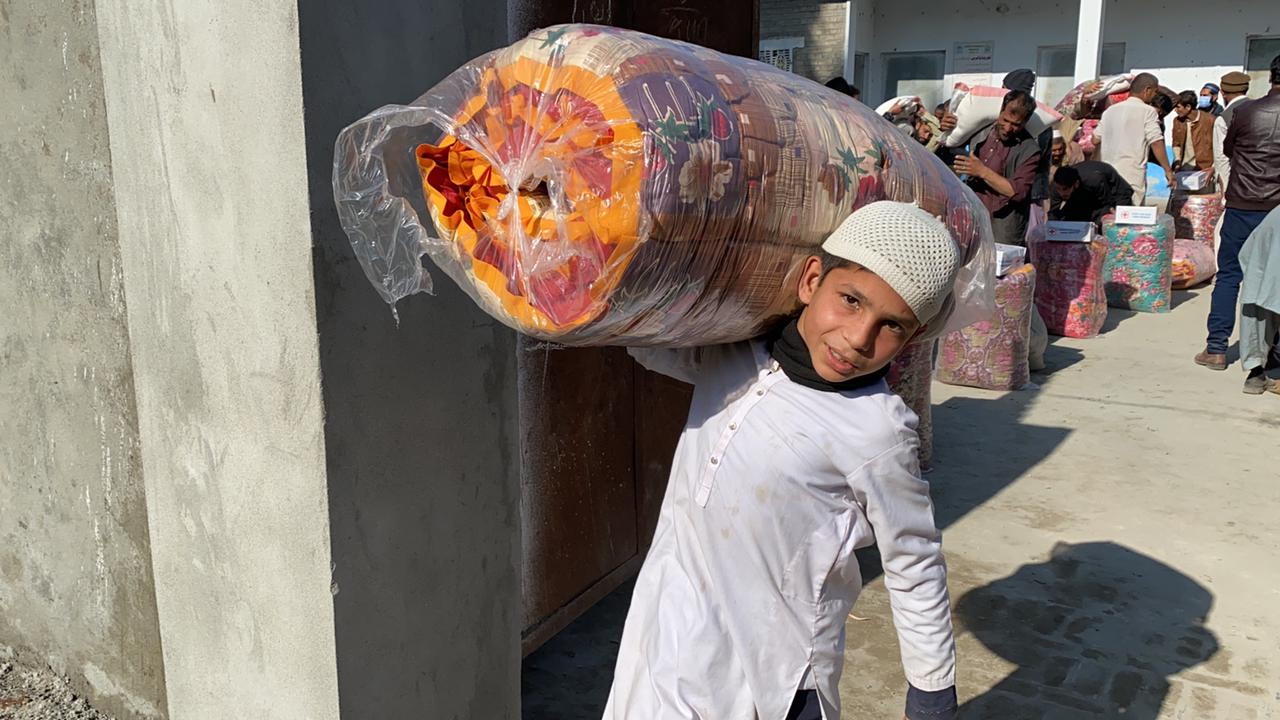
PAKISTAN: Afghan refugee families receive humanitarian aid
Don Bosco Lahore distributes humanitarian aid to 200 Afghan refugee families thanks in part to donor funding from Salesian Missions.
NEW ROCHELLE, NY (Jan. 25, 2022) Don Bosco Lahore distributed humanitarian aid to 200 Afghan refugee families in the community of Peshawar, Pakistan, thanks in part to donor funding provided by Salesian Missions, the U.S. development arm of the Salesians of Don Bosco. The Salesian community offered shelter and basic necessities to 1,500 people, who are mostly children.
The aid was provided with the collaboration and coordination of local authorities, the police, and the city administration, which facilitated the distribution. The initiative was also supported by Don Bosco Switzerland and Salesians in Berlin.
Mr. Vincent, who coordinated the distribution, said, “The Christian community of Peshawar has rallied around the value of solidarity. We felt proud that we could selflessly help people of other religions in a spirit of universal brotherhood.”
According to the U.N. Refugee Agency (UNHCR), nearly 700,000 Afghans were internally displaced by conflict in 2021—with some 3.5 million people in total uprooted throughout the country. Iran and Pakistan together host almost 90 percent of all Afghan refugees worldwide and have been doing so for more than four decades.
Salesian centers in Quetta and Lahore offer quality education and an innovative teaching style. More than 1,000 students from disadvantaged families attend Salesian schools. Salesians first started providing education in Pakistan in 1998, and today, their centers are considered some of the best education in the country.
Salesian schools provide economic benefits, scholarships and accommodations for students from the poorest families so that education is not only accessible but also an incentive for parents to send their children to school. Pakistan has one of the lowest literacy rates in South Asia at less than 50 percent. Although the country’s constitution acknowledges free and compulsory education between the ages of 5-16, the rule is often not followed in rural areas for those over age 13.
According to the World Bank, 31.3 percent of people living in Pakistan fall below the poverty line. Gender plays a role in poverty in the country. Pakistan has traditional gender roles that define a woman’s place in the home and not the workplace. As a result, access to education is challenging for girls and society investments are less. There are few opportunities for women and girls in the country outside of traditional roles. This is evidenced by the disparities in education including the literacy rate.
###
Contact: [email protected]
